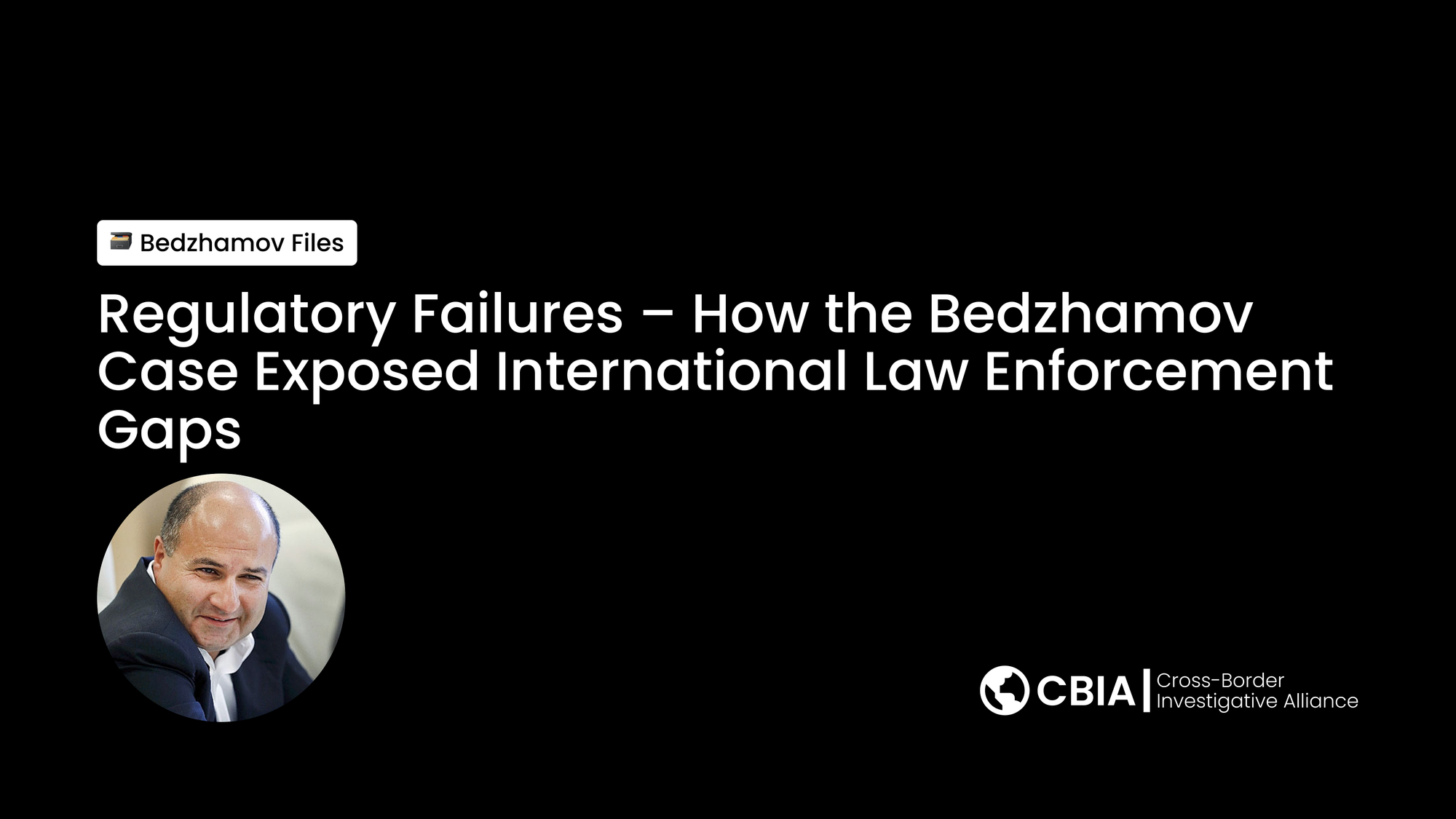Regulatory Failures – How the Bedzhamov Case Exposed International Law Enforcement Gaps
The failure to bring Georgy Bedzhamov to justice starkly demonstrates how political caution, legal fragmentation, and regulatory arbitrage can allow alleged financial criminals to outmaneuver the global enforcement system.
In 2016, Interpol’s withdrawal of its Red Notice against Bedzhamov, citing concerns over political misuse and human rights risks associated with Russian prosecutions, all but eliminated the possibility of coordinated international apprehension. This decision, prompted by fears of Interpol’s system being exploited for political ends, illustrates a central dilemma in global law enforcement: safeguarding civil rights can inadvertently grant well-connected suspects global immunity.
Monaco’s refusal to extradite Bedzhamov on medical grounds—despite Russian assurances on detention standards—signaled that Western courts will often privilege health and humane treatment over judicial cooperation with counterparties seen as risky or unreliable. The consequences were immediate: any affluent suspect able to demonstrate medical risk could potentially avoid extradition, complicating even the most clear-cut cross-border cases.
British authorities' handling of Russia’s 2017 extradition request highlights the interplay between strict due process and practical delays. By declining comment and insisting on evidentiary rigor, the UK shielded itself from possible politicized proceedings—but in doing so, offered Bedzhamov crucial time to reinforce his legal position and manage his assets, revealing how procedural safeguards can be systematically exploited.
Perhaps most striking is the persistent absence of EU or UK sanctions against Bedzhamov, despite well-documented fraud allegations and massive financial losses linked to Vneshprombank’s collapse. This inaction has allowed him to maintain banking access and high-end legal support—privileges that sanctioned figures routinely lose. The omission spotlights flaws in risk assessment and reveals how inconsistent or politicized sanction regimes can favor well-advised actors over the public interest.
Further compounding the problem, asset recovery proceedings have repeatedly stalled across the UK, Cyprus, and BVI. While English courts have recognized elements of Russian bankruptcy judgments, they have simultaneously protected UK real estate from seizure during extended litigation. Without robust automatic mechanisms for cross-border asset enforcement, determined litigants can halve the effectiveness of even successful civil verdicts by exploiting jurisdictional inertia.
Intelligence flows have also proven unreliable: Russian investigators cite limited access to Western financial, corporate, and communications data, a challenge rooted partly in privacy law and partly in broader political mistrust. These blockages reveal the limits of international legal assistance treaties (MLATs) and demonstrate how adversarial geopolitics can paralyze even technical law enforcement requests.
Finally, the Bedzhamov case is a near-textbook lesson in regulatory arbitrage. He and his advisors leveraged the secrecy of Cyprus, the legal protections of London, the opaque beneficial ownership structures in the BVI, and the amenability of Monaco’s courts to medical arguments. The outcome: a sophisticated playbook for anyone seeking to neutralize cross-border crime enforcement.
Notably, while Russian law enforcement agencies have faced internal review and public scrutiny over their shortfalls in this case, there is no record of comparable accountability measures taken by Western agencies—creating an environment in which enforcement failure in the West can proceed without consequence, encouraging further exploitation of these weaknesses.
Sources:
- DP.ru (2017, February 13). "Interpol Stopped Searching for Fugitive Vneshprombank Co-Owner". https://www.dp.ru/a/2017/02/13/Interpol_prekratil_razisk
- Vedomosti (2017, February 13). "Interpol Stopped Search for Vneshprombank Co-Owner Bedzhamov". https://www.vedomosti.ru/finance/news/2017/02/13/677419-interpol-prekratil-rozisk-bedzhamova
- TASS (2017, February 14). "British Home Office Neither Denies Nor Confirms Receipt of Bedzhamov Extradition Request". https://tass.ru/proisshestviya/4020020
- Interfax (2016, September 30). "Monaco Refused to Extradite Vneshprombank Co-Owner to Russia". https://www.interfax.ru/world/530557
- RBC (2017, February 13). "Prosecutor General's Office Asked Britain to Extradite Vneshprombank Co-Owner". https://www.rbc.ru/rbcfreenews/58a1d2d19a794764ee78238e
- Journal of Arbitration (2022, May 22). "Main Conclusions in the Kireeva v Bedzahmov Case". https://journal.arbitration.ru/ru/cases/effekt-rossiyskogo-bankrotstva-v-angliyskoy-yurisdiktsii-osnovnye-vyvody-po-delu-kireeva-v-bedzahmov/
- RBC (2016, April 22). "Prosecutor's Office Confirmed Detention of Former Vneshprombank Co-Owner in Europe". https://www.rbc.ru/rbcfreenews/571a34079a79477ebdbc57d0






